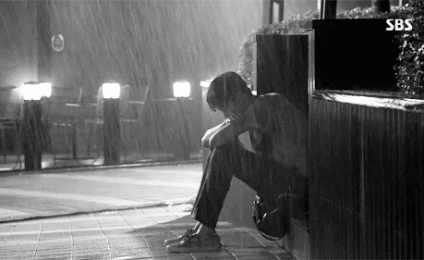Human relationships rarely just fall apart overnight. Whether it's a friend or a close intimate partner, the signs are usually there for anybody self aware enough to see. Unless you've had some big explosive 'end of the road' type argument, most of the time our relationship woes come down to the habitual level- those small behaviours we do, usually without thinking, that slowly turn a good thing bad. It can sometimes be so unnoticeable, that we're left scratching our heads wondering 'what happened!?'
And when it comes to these behaviour patterns, you'll read 5 of the biggest ones to avoid here- why they're so damaging, and what you should do instead. Now of course, switching these behaviours isn't going to INSTANTLY save you if your marriage is on the rocks- it took time to break down, and it will take time to fix. But even if you cut just ONE of these habits out, you WILL notice a positive change in the quality of your love & social life.
This article is focusing on intimate partnerships, but these habits and fixes STILL apply to most people you deal with on a day-to-day basis.
1) Criticising/fault finding your partner to others.
The behaviours we're listing here are in no particular order....EXCEPT for this one. Criticising, diminishing or finding fault with your partner in front of others is the ultimate no-no, whoever they are to you. In fact the closer they are to you, the BIGGER damage you'll be doing. For a few reasons.
First, let's start with the obvious- it's embarrassing and disrespectful to do it. It's uncomfortable for whoever else you're with too. Whenever you express dissatisfaction with your partner, it forces the person you complain to into a position where they feel like they have to pick a side. And that's...really awkward. If you've ever gone out to dinner with a couple that you can tell have just had an argument, you'll understand how uncomfortable it is to make small talk while they snipe at each other.
It's even worse if you complain about your partner to your family. ESPECIALLY if they haven't yet met them. Talk about a bad first impression- if all your family know is all the ways you think your supposed love isn't good enough, you've got exactly 0% chance of them being accepted- why WOULD they be accepted?
So what should I do instead?
Simple, keep it to yourself. Or, if you absolutely MUST talk to somebody...do it privately. And make sure that person:
A) Gets the full picture- no cherry picking or glossing over their good qualities!
B) Knows how to keep it to themselves!
2) Dismissing/diminishing feelings
One of the most frustrating feelings a person can have is to feel dismissed, or not listened to. ESPECIALLY when it comes to people close to us. We look to our partners for a sense of security, emotional safety and 'okayness'. When we don't get it, it's as if we're not really being 'seen' by the people in our lives. That hurt can quickly become resentment if we let it.
Sharing genuine thoughts/feelings takes effort, and many times it can be a bid for affection or affirmation. Having somebody dismiss, ignore or downplay them sends the unconscious message that the other person doesn't really see your emotions as important.
If you've ever made the brave move to open up to your partner to be told you're exaggerating, or even being silly, then you know how much it can hurt.
So what should I do instead?
Take a deep breath. Instead of leaping into defense mode, when somebody opens up to you- validate them. It's as easy as saying 'I can see that you're (sad/scared/angry/etc)- I get it'. Even if the reason may not be totally rational. Whatever you're disagreeing on will only be a bigger argument if you can't defuse the emotional charge behind it.
3) Point-scoring
It's a cliched line at this point, but a healthy relationship really should be give and take. BUT, that doesn't mean we should be transactional- always keeping a running tab on what the other person did wrong so we can detonate that bomb when we need an easy out during an argument!
In a partnership of any kind, if you're doing things right, then you should feel like part of a team. When we keep a mental list of all of the other person's mistakes and failings, we make the relationship adversarial- it's no longer 'you and I', it becomes 'me vs you'.
Over time, this puts both sides in their ego and confrontations become not about meeting each other half way, but 'winning' on your side. Your relationship dynamic becomes a story on 2 separate pages, instead of one.
So what should I do instead?
If somebody does something you don't like, have an honest conversation addressing it. Say everything you need to say then and there If it's so big and serious that you need some emotional space, express that. But be sure that once you're ready to make peace and forgive, that you let it go.
And if you can't forgive? Forget them. Don't continue the relationship and remind them of their mistake every chance you get, it isn't fair to either of you.
4) Using their vulnerabilities in an argument

When I was a younger man, one of my first 'situationships' was with a girl we'll call 'Charlotte'.
During one of our frequently gooey 'into the night' phone calls, she had expressed that she'd just split from her first boyfriend, and it was a difficult adjustment for her. She'd come away feeling like she wasn't good enough.
I probably gave her some mushy wannabe Romeo response, but a few days later we had an argument. She said something that I didn't like and I went into attack mode, saying 'I'm beginning to understand why he dumped you'.
Bad move- we were basically done right there. The vibe was never the same after that and we stopped talking completely by the end of the month.
It can be tough to be raw and real with the people we most care about- whether it's because we're scared of their judgement, of hurting them or losing them, sometimes it makes a difficult conversation harder.
If you're like my younger self, and you've got a track record of using peoples' insecurities as weapons to hurt them, you might walk away afterwards feeling like you've won something. But really, you've lost big time. Because all you've done is teach the other person that you're not safe to reveal themselves to.
So what should I do instead?
NOT do that. Simple. And if somebody does that to you, that's a MAJOR red flag that you shouldn't ignore!
5) Not asking for what you do/don't want aka 'mind reading'
My grandad always used to tell me 'if you don't ask, you don't get'. For our relationships, that's definitely true. Oftentimes when we're used to a certain kind of treatment, we come to expect anybody new in our lives to just 'know' what we want- as if they had the ability to see inside our heads and 'divine' the right thing to say or do in every passing moment.
This can set up a rocky road for others. One where they constantly feel as if they never quite know how to behave around you. Or the one who suffers could easily be YOU, silently fuming for the 5th time this month as your partner leaves their dirty work wear on the sofa while they shower- blissfully unaware of your unexpressed resentment.
Expressing your dissatisfaction with a behaviour isn't being argumentative, it shows you value yourself, and your relationship- because you make the effort to address how you would prefer a person to act, you allow for clearer expectations for the other person, and less silent tension in your communication.
So what should I do instead?
When you're asking for something from your partner, it can be REALLY powerful to 'go first' and use an 'us' frame. Something like:
"Hey, so I notice we've got a bad habit of (insert thing to fix here). I want us to focus on (whatever outcome you want), would you be willing to help me with that?"
This is a diplomatic, non-ego approach that will be much more likely to get an agreement from somebody. If they DO say yes, always be sure to praise ANY effort they make to get towards the outcome you want!

























